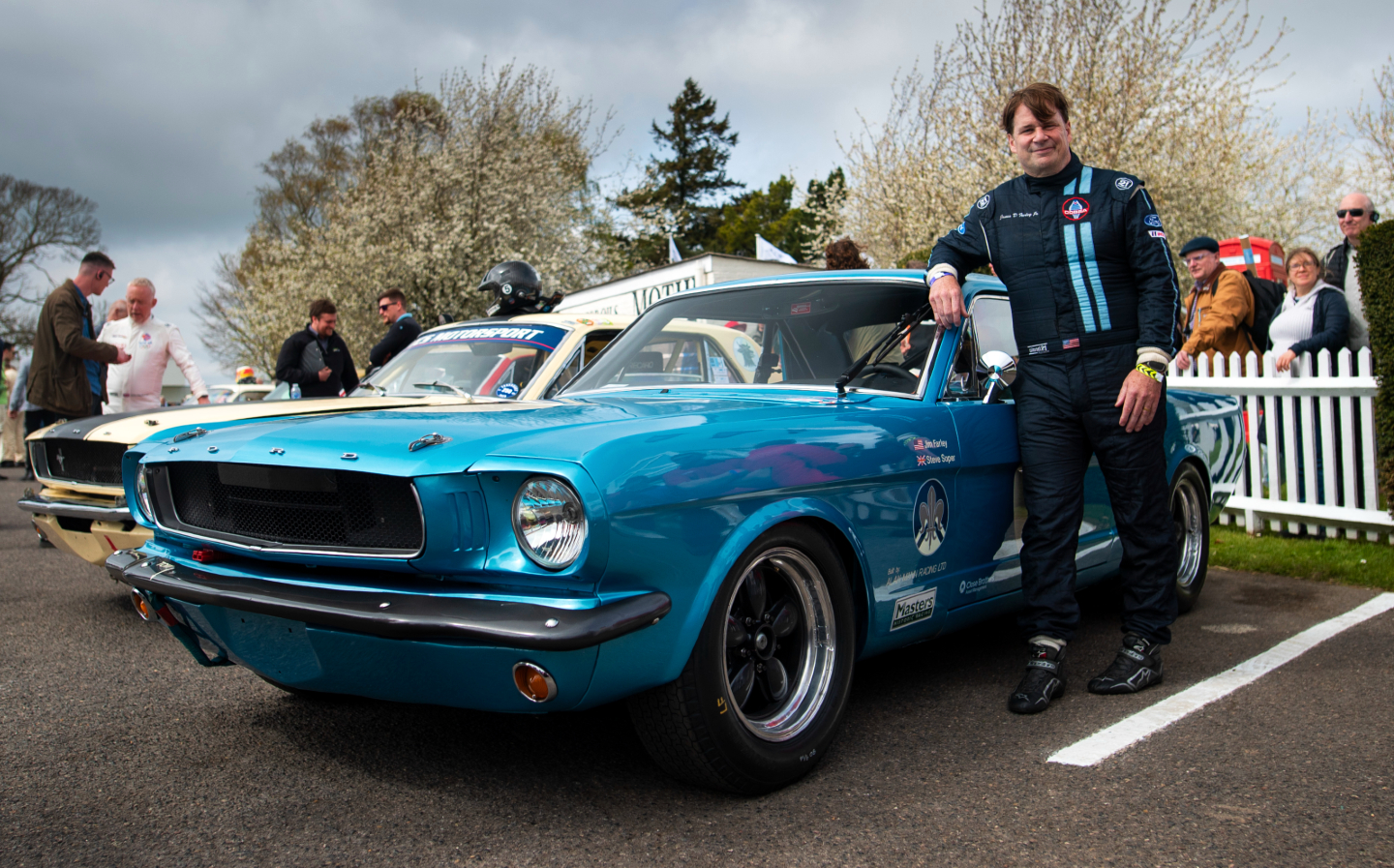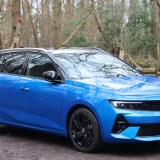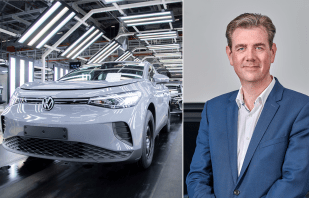Jim Farley, Ford's racing driver CEO: Porsche has outsmarted us in the past; now it’s time to outsmart them
'Motorsports has the kind of community that will never allow me to be out of touch'
Most car company CEOs could be considered “car people” but Jim Farley is like an auto executive rockstar who’s turned his car-ness up to 11. The affable American is not only Ford’s CEO but also a motoring podcaster, social media influencer and, since January last year, a professional racing driver. He’s a man who lives and breathes his brand, spending seven days a week immersed in all things Ford, whether it’s highlighting new products and technology on Instagram, chatting with celebrities about their love of cars, tinkering with his classic car collection or getting behind the wheel of a Mustang GT4 racer.
“I just love the company,” he confides while suited up, ready for a classic Mustang race at Goodwood’s 81st Members Meeting. “My grandfather worked there; he was an early worker [at Ford]. I love the people, and seeing them grow into new roles. But my personal ‘why’ is to make products, software included, that people cannot imagine their life without. When I go into the design studio, we bitch and moan and shout and scream at each other to make the next vehicle the very best, irresistible Ford. That is all I live for. I cannot sleep at night.”
Farley confesses that he can be a nightmare to work for, “Not because I’m unreasonable, but because I know in our industry good product improves everyone’s IQ. Everyone gets smarter. So I’m going to push and fight and negotiate for the very best product.”
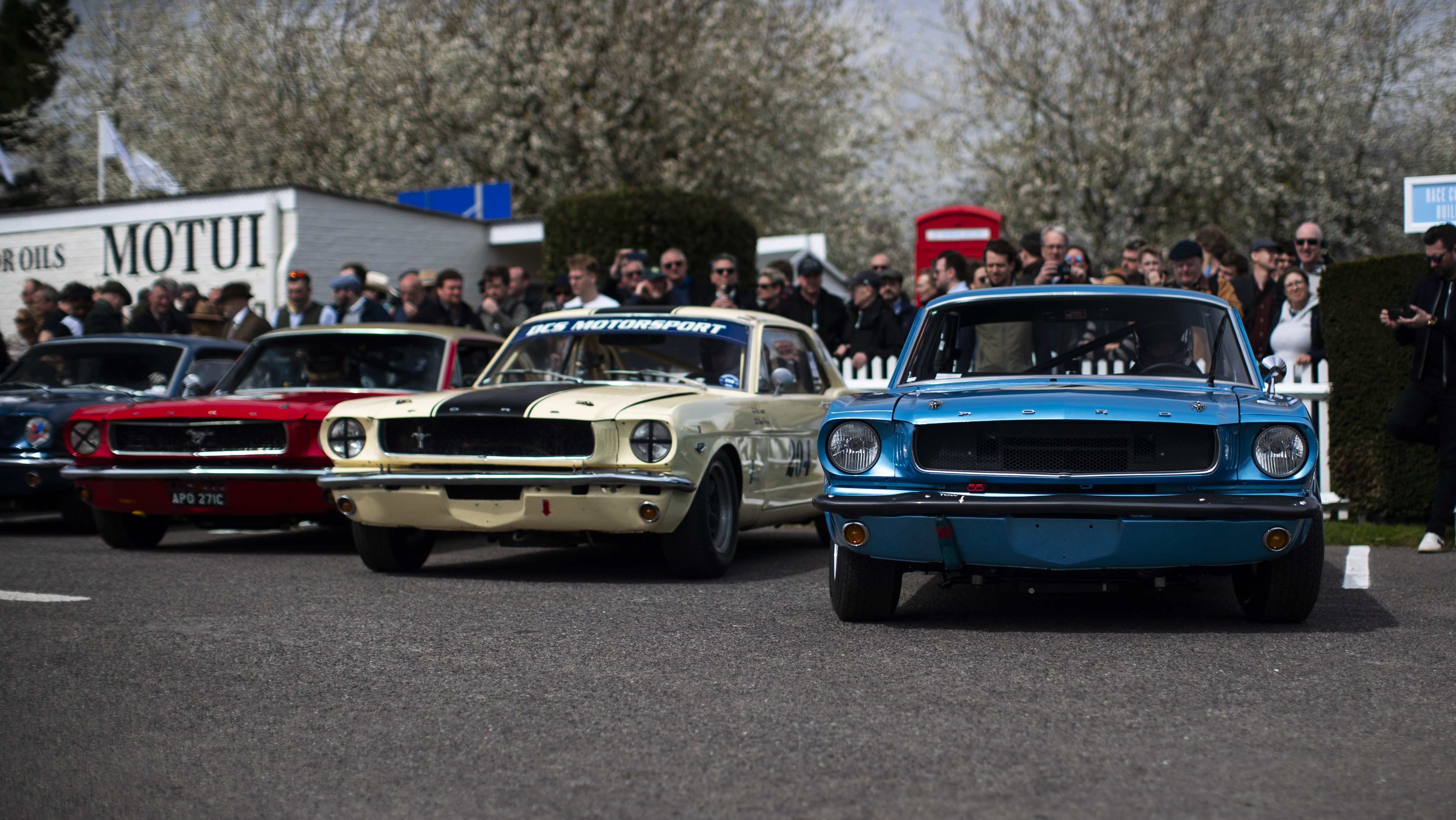
The Mustang is clearly one of those products. Celebrating its 60th anniversary this year, Ford’s “pony car” became an instant icon of the marque and has been in continuous production ever since. Owners’ clubs around the world have been getting together to toast the model, including an 800-car party at the British Motor Museum in April. A special edition Mustang 60th Anniversary model has also been announced, featuring a redesigned grille, side decals, wheels and badging that hark back to the original model.
The Mustang name has also been lent (controversially for some enthusiasts) to Ford’s electric crossover, the Mustang Mach-E, but a new version of the petrol-powered coupé and convertible were released in 2023, including a performance-focused “Dark Horse” and even a Dark Horse S, which bridges the gap between road and racing. There are also track-only GT4, GT3 and one-make Dark Horse R flavours available to customer racers this year.
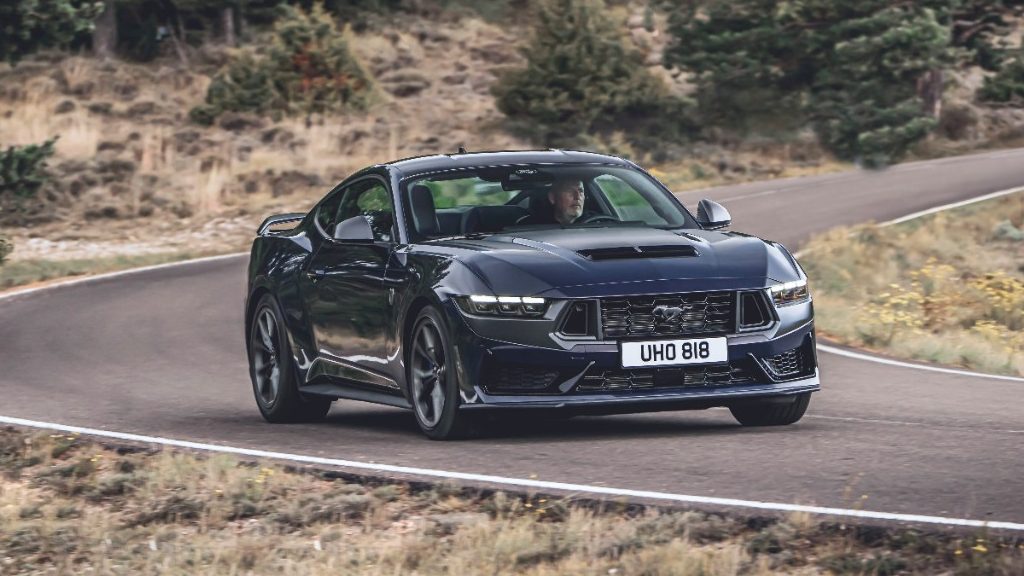
In short, Farley is breathing new life into Ford’s best-known model, and striving to connect Ford’s motorsport pedigree with its road car offerings.
“I think companies like Porsche have done a better job of merchandising their participation in motorsport,” he tells me in the paddock at Goodwood, which is filled with more Mk1 Mustang racing cars than many people would believe exist. “I mean, who is racing more on any weekend than Ford? With Mustang, we race NHRA (the National Hot Rod Association of America), all classes of Nascar, V8 supercars, WEC (World Endurance Championship, of which the Le Mans 24 Hours is an event), IMSA (International Motor Sports Association, which governs sports car races in North America).”
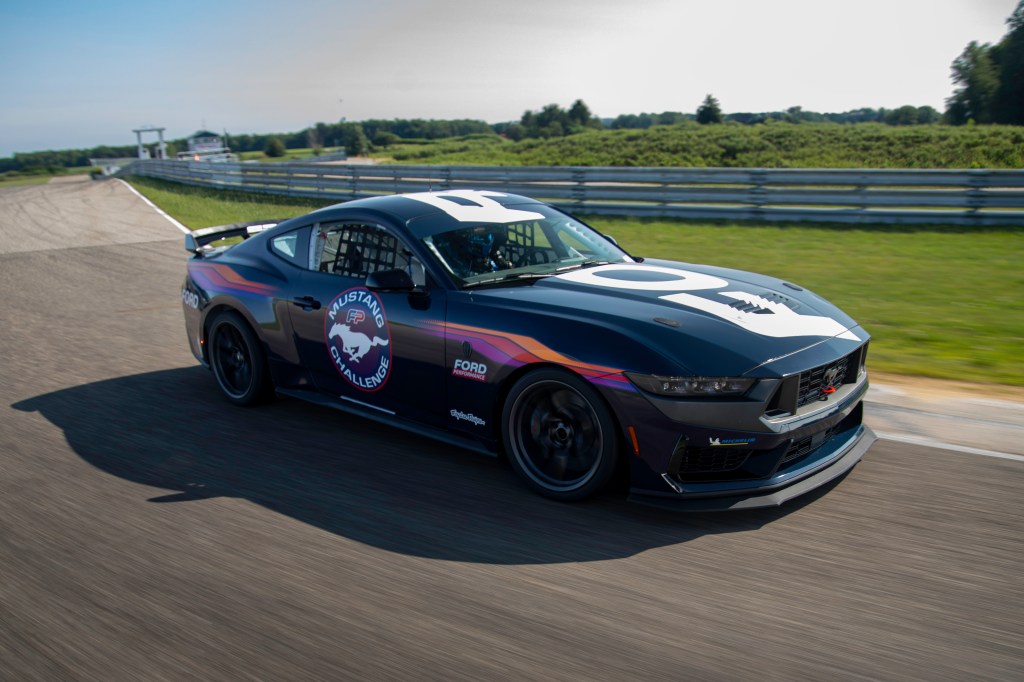
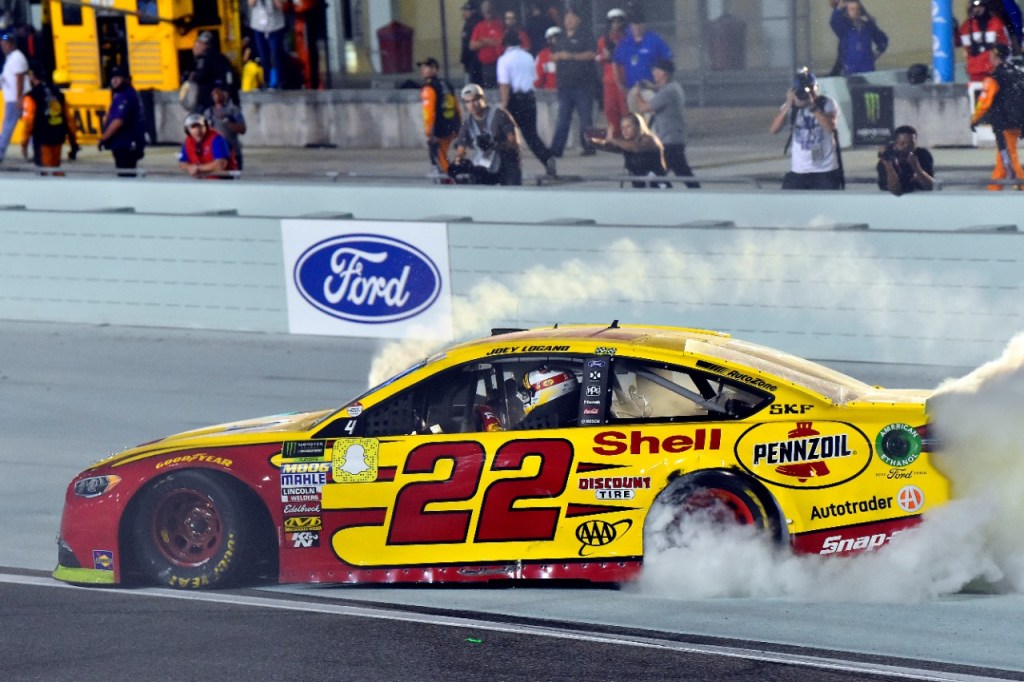
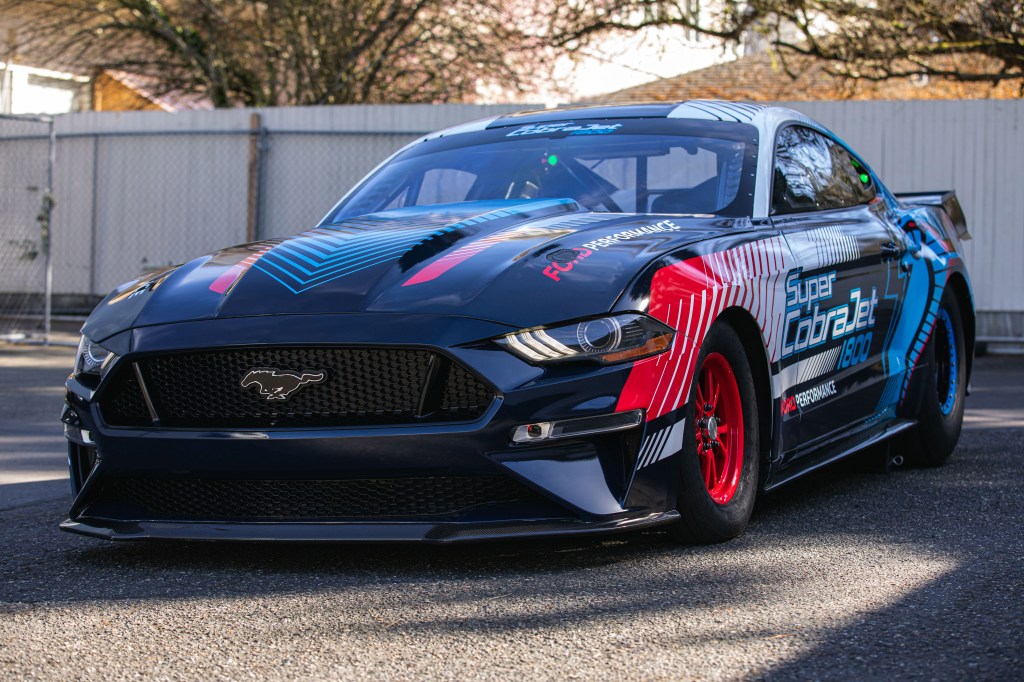
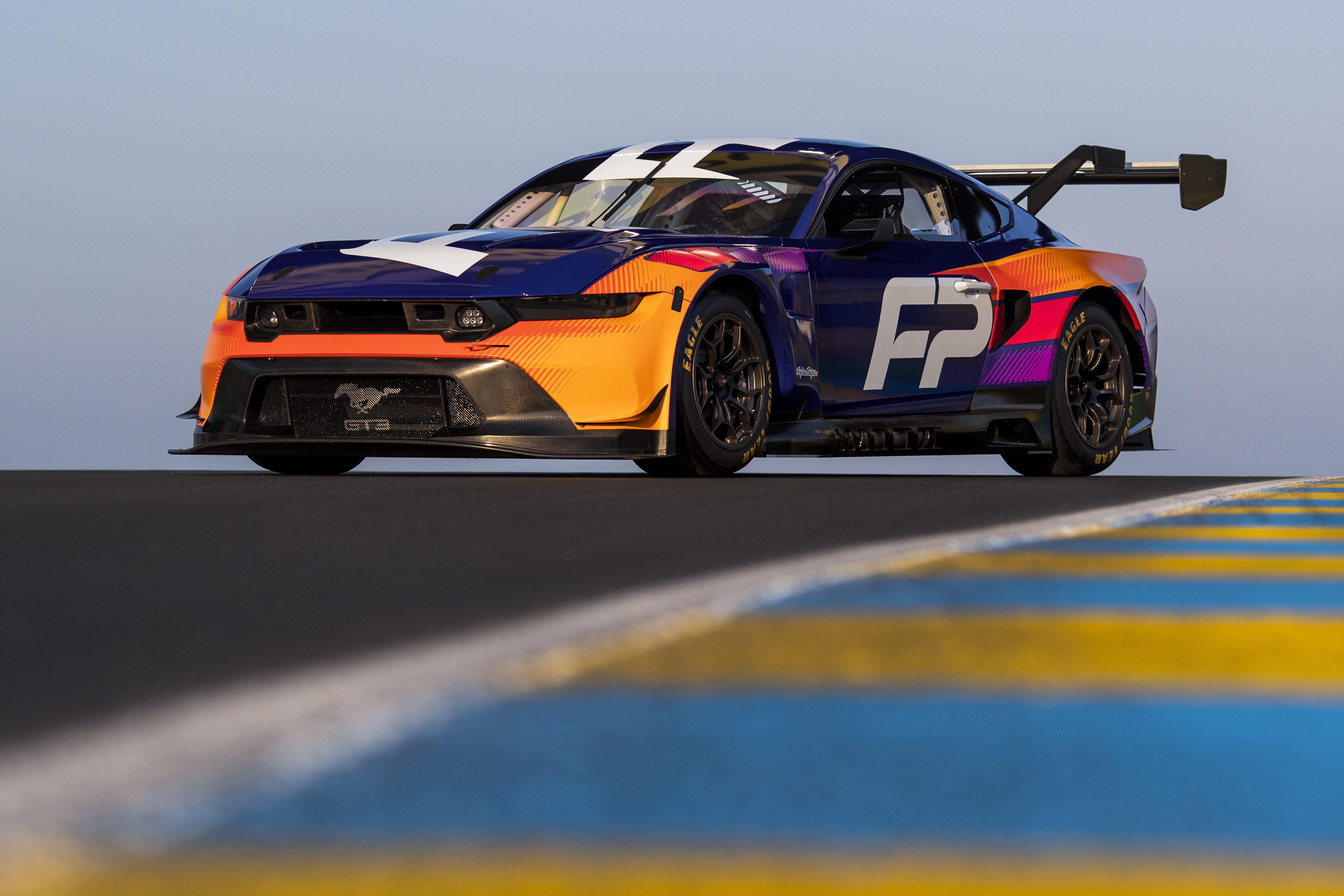
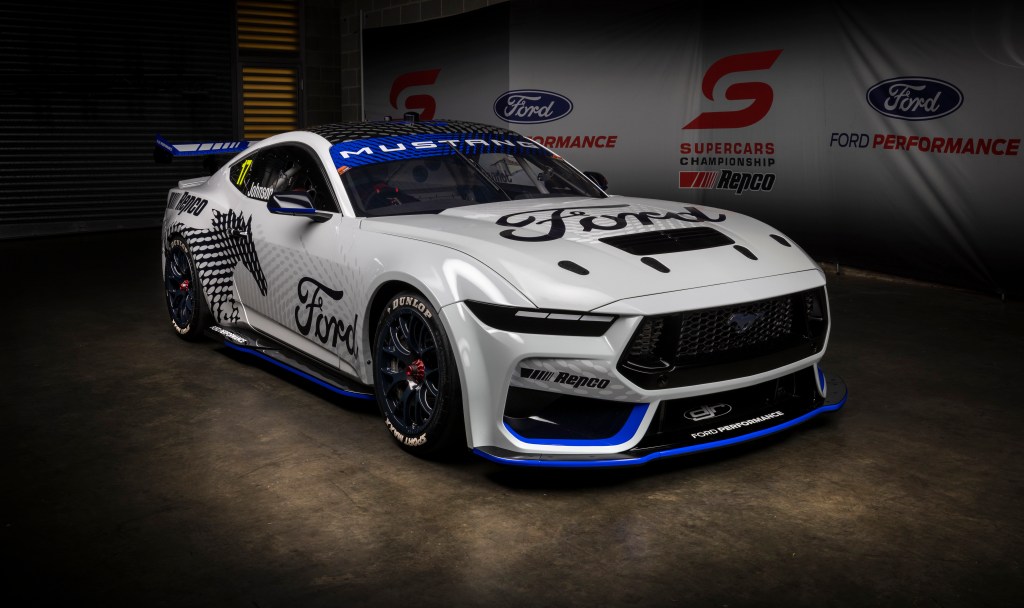
Fords compete in many other categories, too, including off-road. “Yeah, we have WRC [World Rally Championship]. We went to Dakar this year, too. We go to the Baja 1000. We go to Pikes Peak. It’s a long f*cking list.”
Farley says he recently tasked Ford with cataloguing the firm’s many historic competition cars globally for the first time. “They’re in every nook and cranny around the world. There’s hundreds of Ford cars that we own that we didn’t even know we own.”
And yet many car buyers aren’t too aware of Ford’s racing pedigree, he concedes.
His reference to Porsche is an interesting one; many people on the street might not be fully aware of Porsche’s current racing programmes but the brand is intrinsically linked to performance, and the associated engineering expertise. This is part of the Porsche DNA, and it happens from the inside out, whereas Farley believes Ford has tended to keep its racing expertise separate from its road cars.
“That’s very typical of Ford. Because running the business and motorsports are two separate things. And what I’m trying to do is actually make motorsports a business at Ford like Porsche has, so that it’s self-sustaining and it can’t be taken apart by the next CEO.”
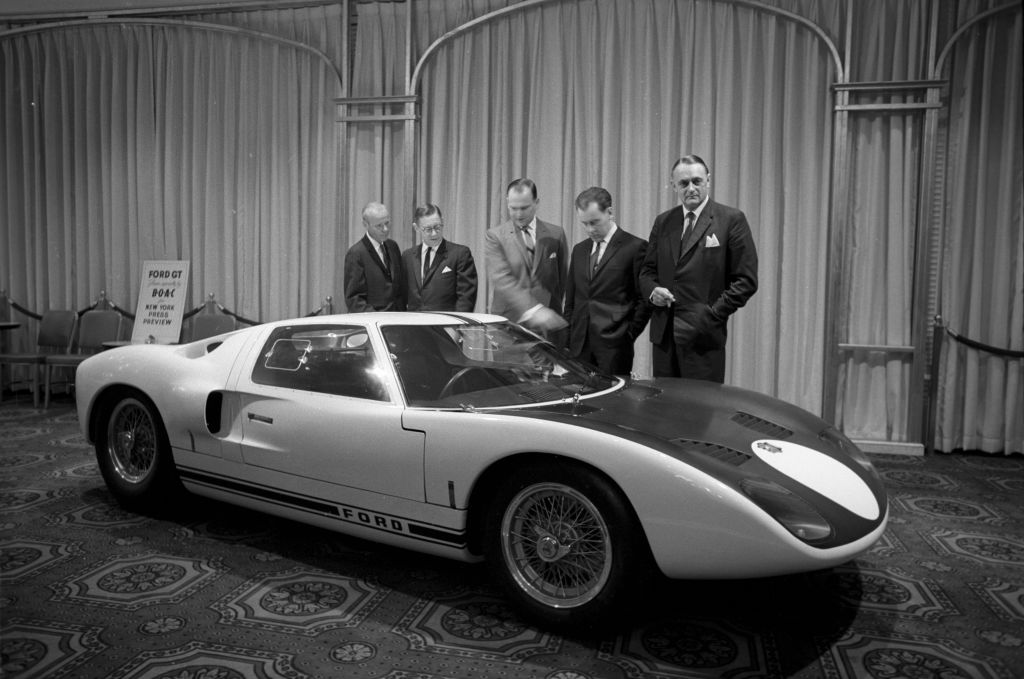
In this way, some could argue Farley is reviving the mantra of Lee Iacocca (pictured with other Ford execs above), the marketing whiz who introduced the Mustang and initiated the GT40 programme as vice president of Ford, and later went on to become president.
Iacocca and the GT40 effort was notably brought to the big screen in 2019 with the Hollywood blockbuster Le Mans ’66 (Ford v Ferrari in America), focusing on the roles Carroll Shelby and cantankerous Brit Ken Miles had on developing that race-winning car.
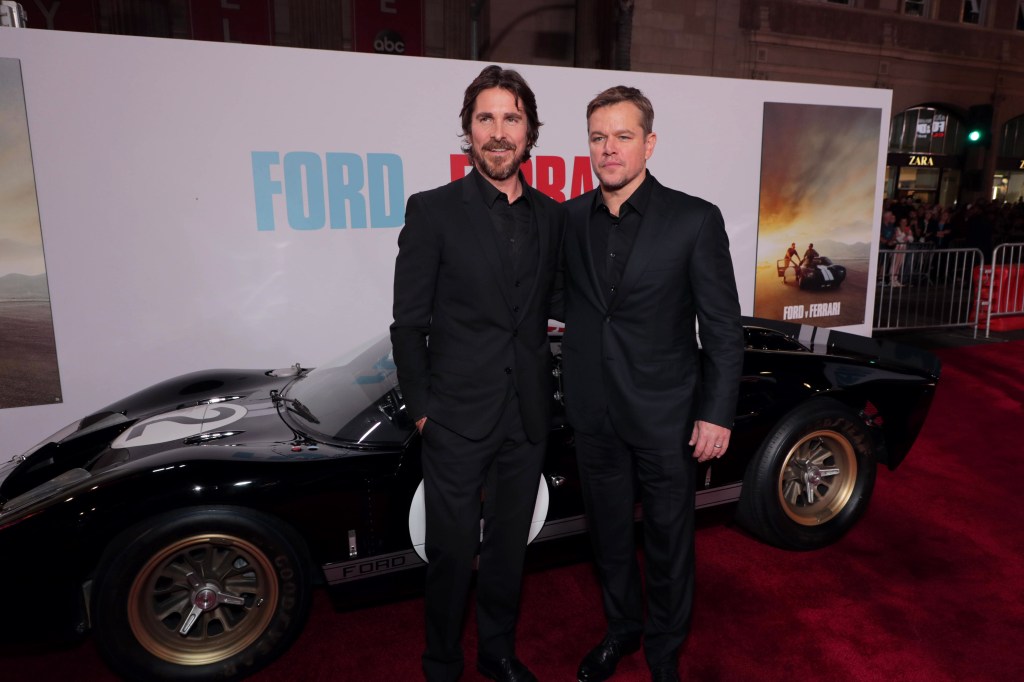
“That movie was fantastic in the sense that it was an ode to Ken,” Farley ventures, adding that he called Peter Miles personally to say that the senior management were happy that his father had finally got his due. “Ken had a relatively difficult life before, during and after his success. So, I think overall the movie was very satisfying for car people like me because we knew what Ken Miles did for our company. He developed the GT40 [into a Le Mans winner] after we had really struggled for several years.”
However, Farley’s love of Ford and deep knowledge of its history made other parts of Le Mans ’66 hard to watch.
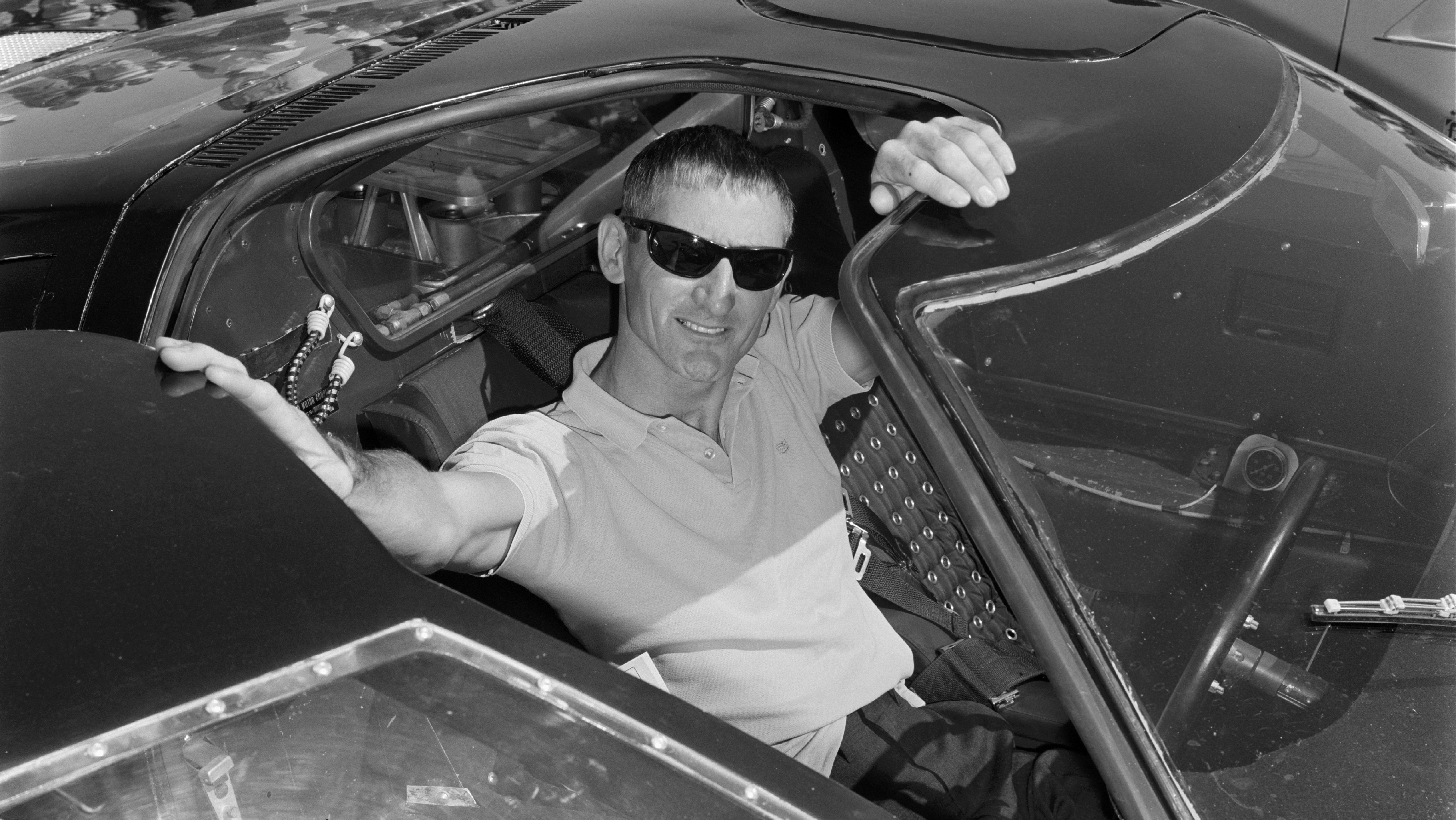
“As far as the accuracy, I mean, it’s a Hollywood movie, and anyone who expects a Hollywood movie to be accurate is being naive. So, I won’t say anything about that other than they made the team manager a villain, which was really not right because he was a lovely man, actually. He wasn’t that kind of person. And I think his family was very upset. After a great career at Ford and getting us to win Le Mans, Hollywood turned that person into something that they weren’t, which was very disappointing.”
The Mustang race at Goodwood’s Members Meeting is named after Ken Miles, and the entry list for 2024 reads like a rollcall of saloon car racing heroes: Andy Priaulx; Tom Ingram; Andrew Jordan; Anthony Reid; Gordon Sheddon; Tiff Needell; Matt Neil; Ash Sutton; Rob Huff. Add a sprinkling of other huge names from the racing world (Tom Kristensen; Dario and Marino Fanchitti; David Brabham; Stig Bloqvist; Jamie Chadwick; Jochen Mass…) and it could become a Top Trumps set in itself.
Farley was driving a striking blue 1965 Mustang entered and prepared by another huge name in Ford’s motorsport story, Alan Mann Racing, sharing pedalling duties with Steve Soper – an additional tin top legend, and runner up in the 1993 British Touring Car Championship.
“Steve and Henry Mann worked really hard on the car to get it just right. I could tell Steve’s a perfectionist because everything is done really well and he and Henry did a great job. It’s a very well designed race car within all the rules. So, it’s very well prepared. Everything’s kind of where it should be. It’s just a really nice race car.”
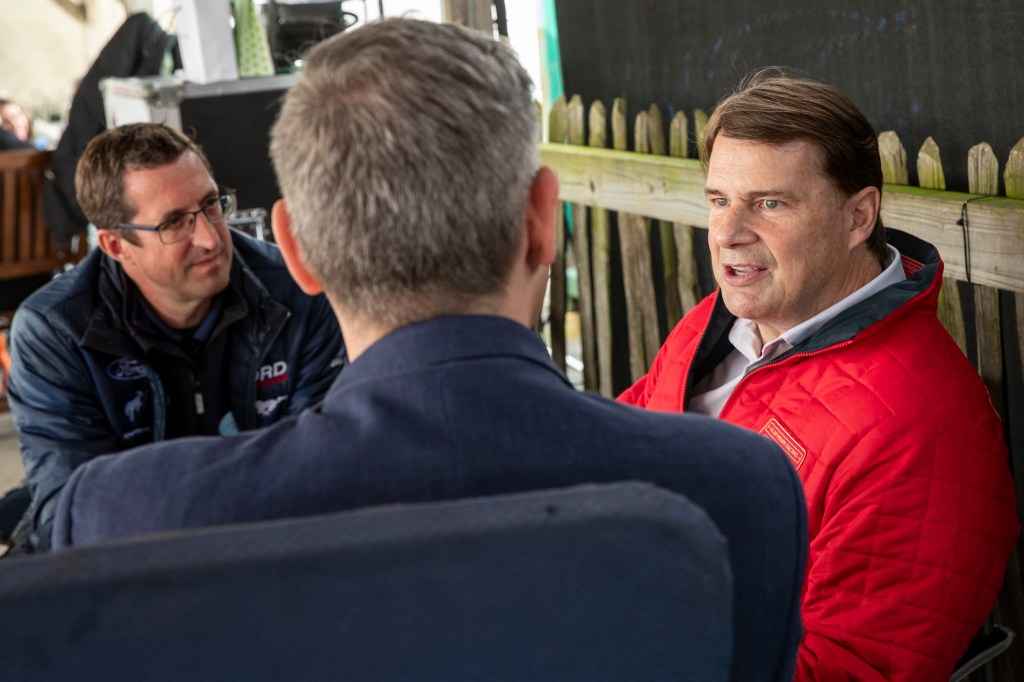
Farley found himself needing to add “Racing driver” to his CV after buying a competition Shelby Cobra around 16 years ago, previously raced – and crashed – by none other than Ken Miles.
“It was a USRRC (United States Road Racing Championship) car,” recalls Farley. “So what might be raced in the Targa Florio, but the US road racing equivalent. The USRRC Cobras were the first small blocks, and kind of the next step up from amateur sports car racing to the professional. And Ken crashed the car at Road America.”
Farley says the story about how he ended up buying the car is a funny one but “not appropriate for print”. However, he does disclose that in buying it, he found himself bound to a gentleman’s agreement that required him to gain a racing licence.
“Carl, the owner who has since died, said, ‘You know, I’ll sell you a car, but you need to race it.’ So I got my competitive licence just out of respect for him. I’d never raced anything before, but I went to race school and got my three-day licence, just to do one race in Road America.”
It wasn’t a one-off, though. After joining Ford of Europe he began historic racing this side of the Pond, with events at the likes of Monza and Spa, and according to an interview with Road & Track magazine “went from the back of the pack, over time, to the front.” Since then he’s got behind the wheel of numerous cars, and in 2023, aged 60, he made his debut as a “professional” racing driver in a Ford Mustang GT4 as part of the IMSA VP Racing SportsCar Challenge at Daytona.
“As soon as I did it, I realised very quickly, because I was getting more responsibilities in the car companies, that this is something where I could be around car people on the weekend. They would all complain about Fords, you know, so I would learn. I’d get everything: ‘My Super Duty broke down, I was towing my race car,’ to senior people like Roger Penske coming up and saying, ‘You know, our Nascar motor is not competitive.’ I mean, I go to the racetrack, and it’s a total meld of business and pleasure. There’s no line, it’s all mixed.”
Farley has admitted that he does think about the risk and danger involved in going racing, both in terms of his corporate responsibility and the responsibility he has towards his family. What exactly have the top brass at work and at home said about the dangers involved, I wonder?
“I don’t really talk about it, because I don’t want anyone to say, ‘You can’t do that.’ Like, I do the six-hour Spa race with Eric van de Poele, and, you know, that’s six hours of Spa in a GT40 at night in the rain. And no one has any idea what’s involved… but I do.”
But even when competing at the highest levels, Farley says making it to the chequered flag unscathed, both in terms of damage to the car and his good name, is the ultimate aim.
“I’m more concerned about my reputation as a good, clean racer,” he tells me. “I don’t see myself as a CEO when I’m behind the wheel. I’m a racer, and I want to race well, but I also want people to respect me and trust me, because that’s when you have fun at racing. I don’t want to be anything other than just another guy in the car next to you.”
The Goodwood Members Meeting mixes some of the variety of the Festival of Speed with the historic focus of the Revival, with racing at the motor circuit involving cars and bikes right up to the 1980s. It’s exclusively open to members of the Goodwood Road Racing Club and vintage dressing up isn’t required, which means it’s less crowded and less formal than the Revival. But the racing is equally as serious.
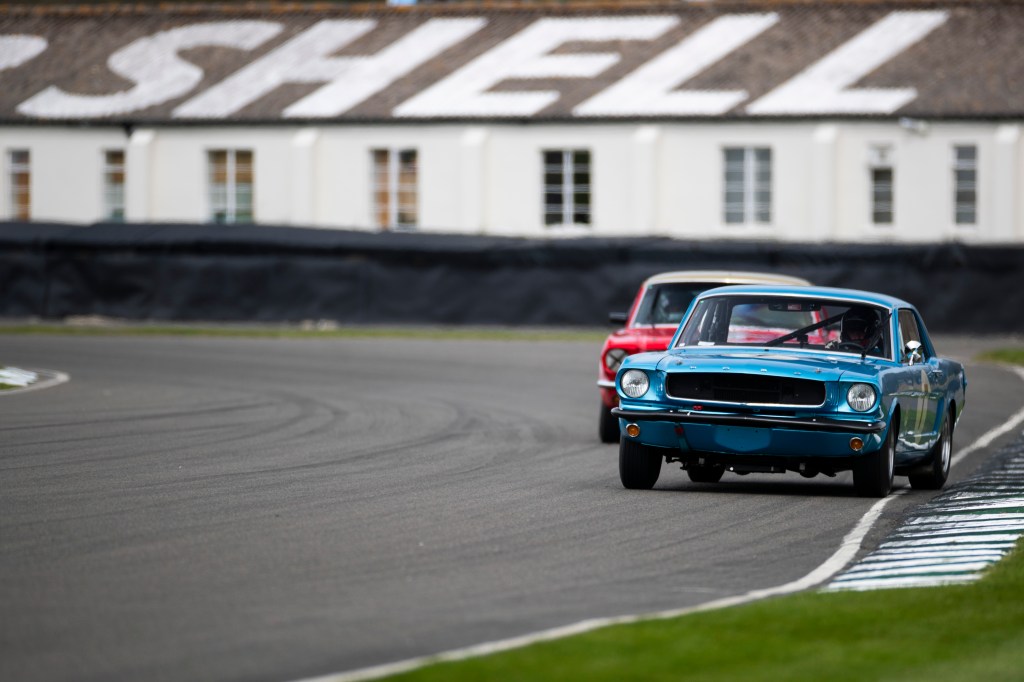
“I think it’s one of the most exciting races I’ve ever been in,” enthuses Farley, who flew over from the States especially. “The Mustang is an oversteering vehicle, so, you know, it’s a lot of course correction, let’s put it that way, and it’s tough to be smooth.”
Farley, wisely, has also clearly read from the racing drivers’ book of excuses: “It’s a very challenging track already, because it’s not a modern track, and I never get enough time here as an American. So I’m always kind of feeling unprepared, and for me to go fast in a car, I can, but I have to feel confident.
“But Steve Soper is such a special guy. He’s a national treasure for you guys. And he has said, ‘Have fun, Jim. But let’s do a good job. So I can’t think of a better teammate than Steve.
“I love racing with people like Steve or Eric, because they’re pros. And they’re not proving anything. They just want to race. And that’s made all the difference for me, racing with him.”
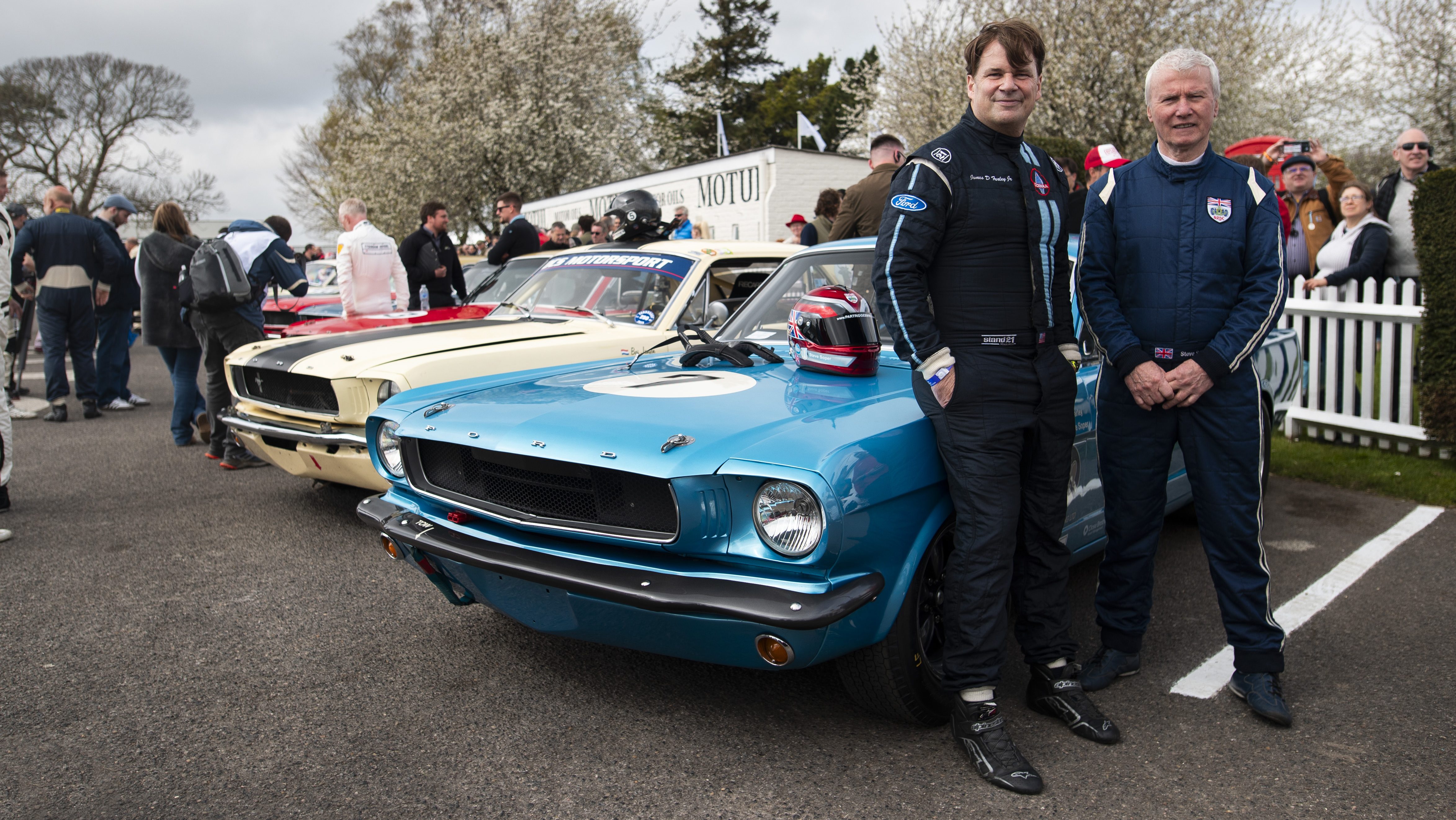
In 2026, Ford is set to partner with the Red Bull Racing team in a major move back into Formula One. But rather than committing to an engineering programme with a Ford engine supply deal and the Blue Oval logo on the side of the car, Farley’s plan is much more business focused.
“We don’t want to own a team,” he tells me. “And we don’t want to provide an engine by ourselves. That’s not what we’re in the sport for. We’re in it for getting knowledge on telemetry and on-board diagnostics and especially aero.”
In return, Farley says, Ford will bring high discharge battery technology and “a lot of other things” from which Red Bull can benefit. “It’s like we did in the ‘70s, really.”
A cynic might suggest that this is because Ford’s last stint in F1 burnt a few fingers. The Blue Oval is still the third most successful car company in F1, thanks to the dominance of the legendary Cosworth DFV engine, which many teams adopted and used to win championships between 1967 and 1983. But its campaigns around the turn of the millennium, supplying engines to Stewart Grand Prix and running the Ford-owned Jaguar Racing team, cost an enormous amount of money while yielding dire results. In fact there were more retirements than race finishes, and one sole win – for Johnny Herbert in a Stewart during a chaotic rain-affected European Grand Prix in 1999. Farley wants to avoid a repeat of those days.
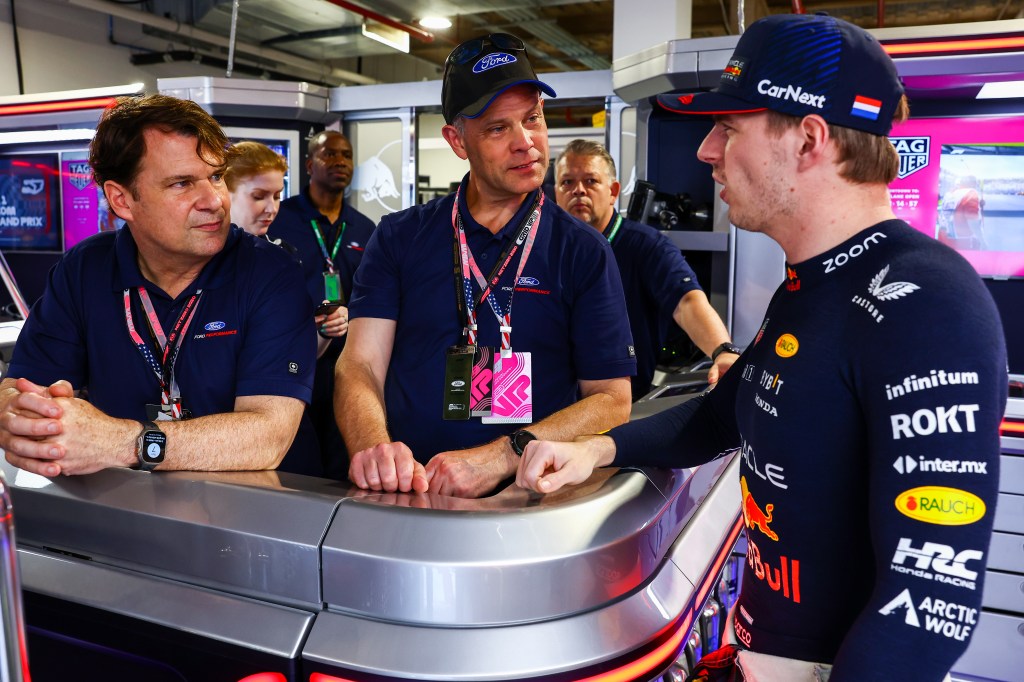
“I think I hold myself to a high standard because I race and I spend a lot of money on racing privately,” he says. “I know how hard it is to race even historic or, you know, amateur or entry-level professional, like I do. And I’m really late in my life. I’m not trying to win any money. I’m just trying to be relevant. But it makes me challenge my team that if we go motorsports racing, it better work and it better be smart. I don’t like wasting money.
“I want to go bigger in motorsports, but do it in a smart way, and I think companies like Porsche have outsmarted us in the past. Now it’s our time to outsmart them.”
Farley says he wasn’t involved in the detail of the Red Bull F1 deal, but it’s what he describes as “an old school technology transfer”.
Of course, there’s another reason why Ford is getting involved in F1 once again: the sport’s profile in its home market of North America has skyrocketed in recent years, thanks in large part to the Netflix documentary F1: Drive to Survive. The F1 rights holder, Liberty Media, is an American firm and since the sport’s popularity has risen in the US, new Stateside races have been introduced; this year there are grands prix in Miami, Austin and Las Vegas.
“We made this decision three years ago, because we had a hunch that Formula One was going to take off in the US, our biggest market,” says Farley. “We felt like the energy transition [to electric and hybrid vehicles] was going to be pretty bumpy. And so having the world’s best drivers, like Max [Verstappen], advocate our partial electric vehicles or fully electric vehicles and give us genuine feedback, and also be motivational to our engineers who are trying to make this transition to a digital vehicle… it’s for all those reasons.”
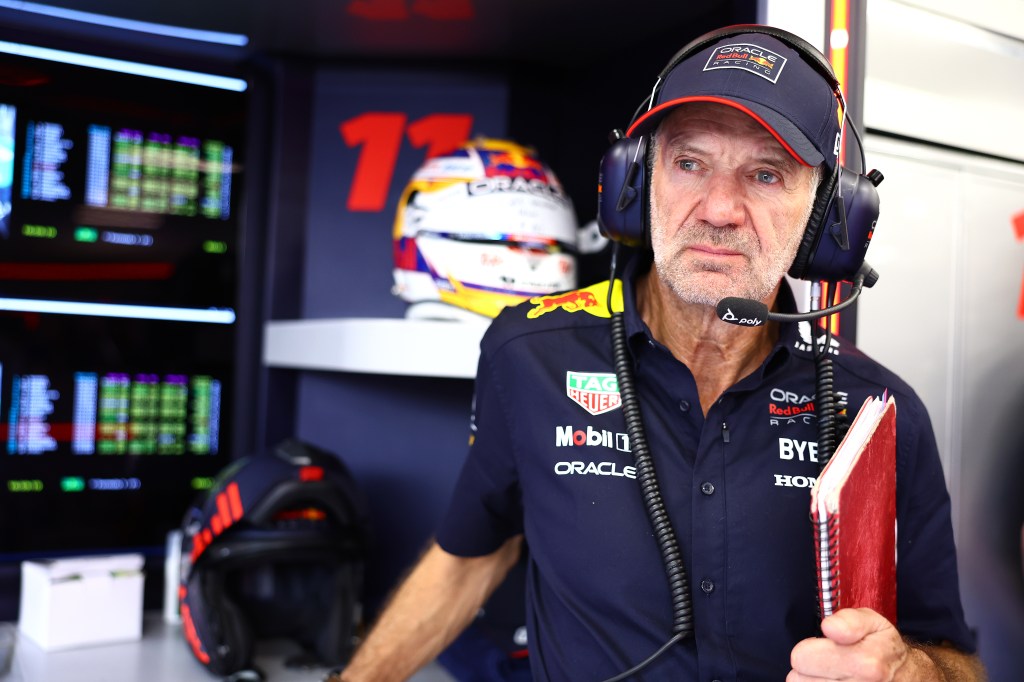
Farley also relishes the chance to work with Red Bull, which has dominated F1 over the last few years. The team from Milton Keynes won all but one race in 2023, with Verstappen winning a record 19 out of 23 grands prix. He tells me Ford particularly likes Adrian Newey (above), the team’s legendary chief technology officer and vehicle designer, and the fact that his technical team is developing the hybrid power unit (based on Honda technology) in-house.
However, after Farley and I spoke, Newey announced he will leave the team at the end of this year. It comes in the wake of a scandal involving Red Bull Racing CEO Christian Horner, of which Farley is on record as taking a dim view. It seems highly unlikely that Ford would duck out of the deal at this point, and at the time of our interview Farley was clearly still focused on the positives.
“Red Bull’s success, the strength of their talent, made it a really good deal for us,” he tells me. “We don’t want to spend a lot of money. We want to be smart. As a racer, that’s one thing that people don’t understand.”
Ford wants to win, of course, but Farley says he is keener for Ford to sell GT3 and GT4 racing cars, Cobra Jet drag racers, and more, with all the sales of racing parts, accessories and merchandise that go along with that.
“That’s a huge transition for Ford,” he says. “To become a customer service organisation where we have our own same make race series, and we race and sell race cars and parts for profit. Not a lot of money, not at all at the beginning, but that’s a way where we can self-sustain racing.”
Farley is an F1 fan, he says, but when asked about his heroes he quickly moves the conversation onto two-wheeled machines: “I love MotoGP and I actually love the British Superbikes. It is some of the best racing anywhere. I think it’s actually what I look forward to the most. One of my closest friends is Wayne Rainey, and I’m on the board of Harley Davidson.
“I love dirt track racing, too. I ride with my kids off-road. All my kids learn mini bikes and then off-road bikes – all have KTMs and ride in northern Michigan.”
Ford’s off-road racing record is arguably even less high profile than its achievements on racing circuits these days. With the WRC no longer shown on terrestrial TV in the UK, we’re a long way from the time of Carlos Sainz and Colin McRae duking it out on special stages in their Ford Focuses, and only real enthusiasts will remember legendary machines such as the RS200.
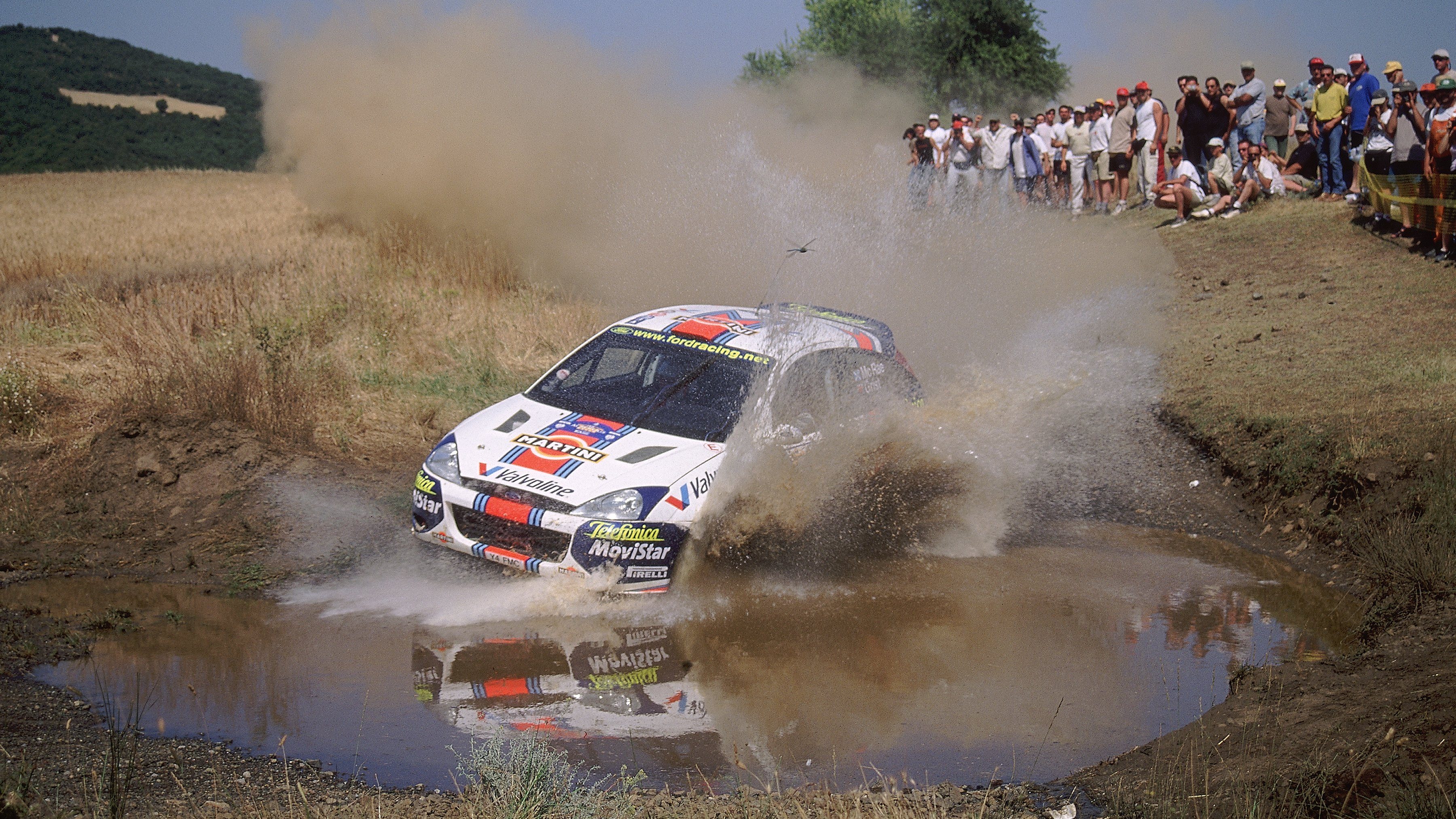
One of the biggest motorsports opportunities in the future is off-road, reckons Farley, highlighting the fact that Ford is the number one producer of pick-ups in the world.
“One of the most underappreciated forms of motorsports is off-road,” he tells me. “And not kind of the way people think of off-road. I think the next future of supercars and really the ultimate performance vehicles will be on and off-road. They will not be limited.
“WRC is the only sport that’s always had to combine those and I believe the next kind of supercars won’t be these track-only, multi-million dollar on-road cars – they’ll actually be digitally tuneable, partially electric rather than fully electric, vehicles that are amazing supercars on the road but are equally competent off-road.”
Farley says Ford has learnt a lot from the Raptor, which is a sporty derivative of Ford’s workhorse pick-ups that feature rally raid-style suspension and more powerful engines.
“I think it is probably globally the most successful performance derivative off-road, and we sell it everywhere from Thailand to the UK on three or four different models. It’s now a billion dollar business for us. And people don’t really consider that like they consider a [Porsche 911] GT2 RS or GT3, but they should.
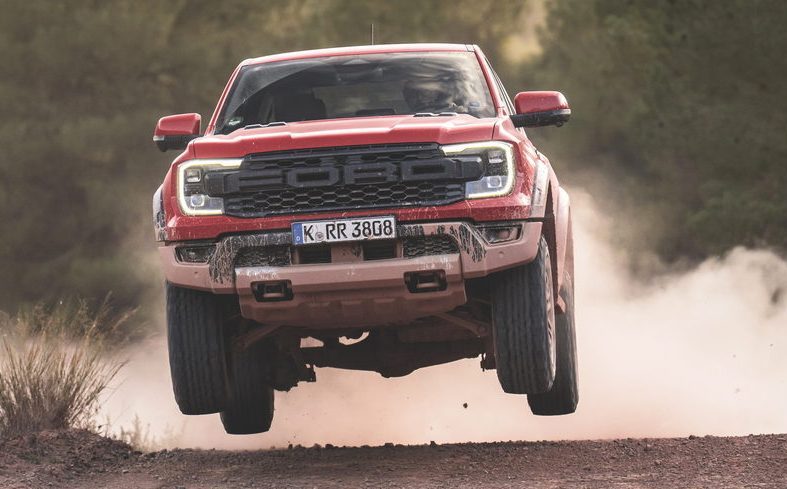
“I believe that WRC and the technology to do really well in WRC – suspension, damping, height adjustments, different tyre technology, and creating a digital form of that with partial electric – to me it’s the future of our enthusiast brand off-road.”
Farley also notes that Ford is the number one producer of vans in the world. The Transit has been a runaway success for the company, and in the UK has outsold even the most popular passenger car in recent years, as consumers turn to online shopping and home deliveries.
“The Transit that we’re developing in Essex and Dunton is now the global leader in vans,” he points out. “The best-selling nameplate ever. Everywhere. It’s number one in the US, number one in China. It’s a huge global success.”
Formula One will make the Transit even better, Farley believes.
“Most of our Transit customers are small business owners. If the company has five Transits and one is off the road, they lose 20 per cent of the revenue. They will pay a lot of money for software that predicts failure of any component of the vehicle that will take that car off the road. That transfer from Formula One – predictive failure of components with AI and sensors, in a real lightweight, low-cost way, up in the cloud, back to the customer – is exactly the technology we’re going to deploy on our commercial vehicles. It’s a combination of telemetry and diagnostics.”
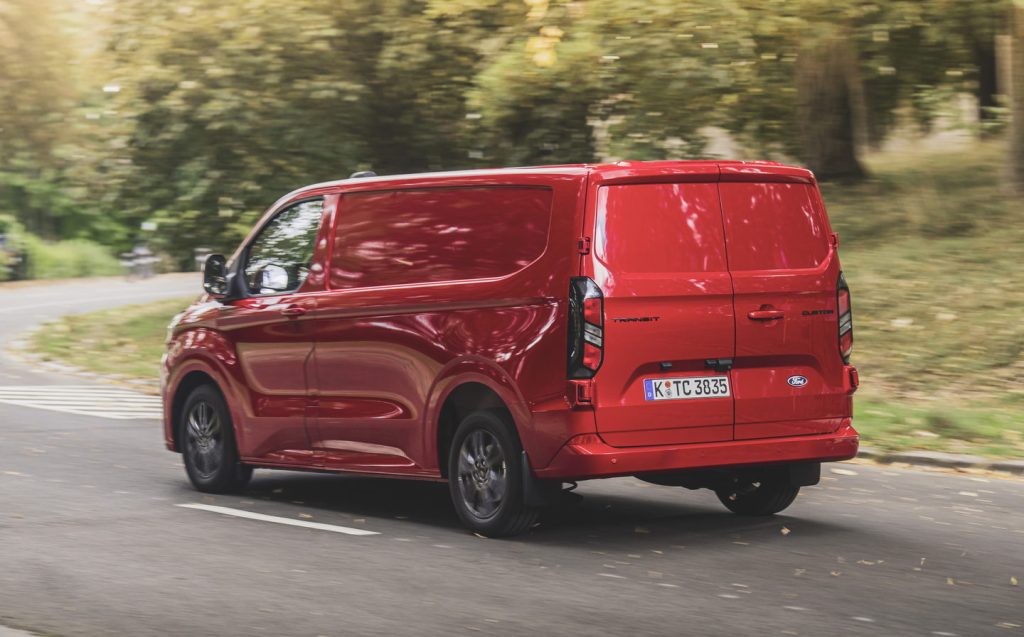
Aerodynamics is another way Farley expects Ford to benefit from F1. “We’ve never had cars with $50,000 batteries in them. The battery cost is so high that aero is now playing a role that it’s never played. You’re going to see new classes of people-movers that are informed by the wind. People like Adrian Newey will have a tremendous impact on our industry, as aero becomes much more important with these very expensive batteries.”
So in Farley’s mind racing still improves the breed, to coin a quote attributed to Soichiro Honda, but does racing improve the CEO?
“I think so, because I get to talk to real people. I would say the biggest risk for any leader is to become out of touch but motorsports is the kind of community that will never allow me to be out of touch. When I come to the racetrack, people tell me the truth.
“Bill Ford’s number one advice to me in my podcast is keep your feet on the ground; have vibrant people around you who tell you the truth. If something is wrong, I know my wife, my family, people at the track will tell me the truth. If we’re getting EVs wrong. There’s no filter here.”
Seeing as he brought up electric vehicles… Ford’s electrification strategy is key to its goal of becoming a carbon neutral company globally by 2050, it says. So far that has involved producing electric versions of the F-150 truck and Transit van, the Mustang Mach-E crossover, and this year we’ll get an electric version of the Puma crossover and an all-new electric Explorer model (below) for Europe.
Ford has killed off the hugely popular Fiesta and Focus models in favour of these electrified crossovers in the UK. But given a reported drop in interest in electric vehicles from private car buyers, has it has made the wrong call in its strategy?
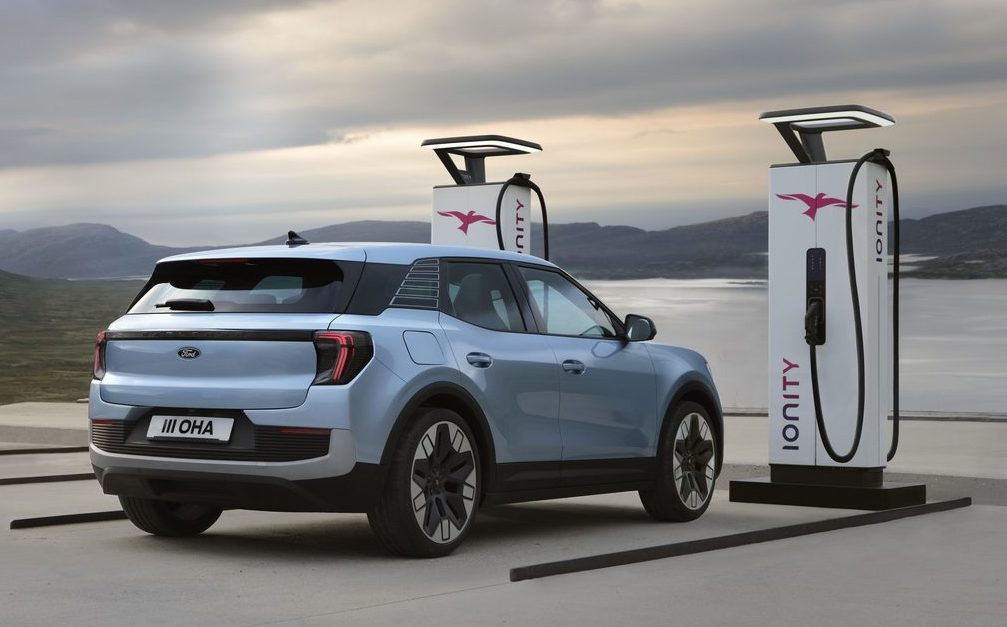
“[The explosion in] interest is slowing, but … it’s still growing faster than the overall industry. What really matters is that there’s no price premium compared to an ice (internal combustion engine) vehicle. The reality is for any CEO of any car company, the Chinese bet on these all-electric vehicles and all the technology ecosystem behind them 10 years ago. They now are the most fit, athletically. They have state subsidies and a lot of support. They have state-owned enterprises that are owned by the government. They have a lot of great entrepreneurs like BYD and Nio. Xiaomi, who’s the Apple of China, just launched their car.
“Ultimately, whenever there’s a new category of vehicles, like all-electric vehicles, you have to be competitive with the most fit competitors. Ford has learnt this the hard way with the Japanese and the South Koreans. They did a great job. They beat us on a lot of categories. We took an eye off the ball. We took things for granted. We cannot do that with EVs.

“If we just go for the almighty profit this quarter, which some companies do, we will be sadly mistaken. Not for me, but for the next and the next generation of Ford employees. My grandfather worked in the plant. They’re going to lose their jobs. I don’t want that to happen on my watch.
“I’m going to play my unfair advantage. I’m going to go in segments that they have no reputation in. Work segments, pick-up trucks, vans. I’m going to go to emotional vehicles like Bronco. They don’t have that legacy. Ultimately, I have to make the cost of technology and the technology delivery good enough to compete with them. Then I’ll win on emotion.”
Related articles
- If you found this interview with Ford’s CEO Jim Farley, you might like to check out what Volkswagen Group’s UK boss told us about UK sales, EVs, the brilliance of Skoda and Chinese competition
- Watch Ford’s ‘Race to the Clouds’ Pikes Peak record run in 1,973bhp electric Supervan 4.2
- Ford Transit Custom 2023 review: Britain’s best-selling vehicle gets a thorough makeover
Latest articles
- Aston Martin Valkyrie AMR-LMH hypercar hits track ahead of 2025 Le Mans challenge
- Porsche has begun testing the electric Cayenne
- Cupra Leon 272 eHybrid 2024 review: Bigger battery, better tech … but is it a Cupra?
- Porsche 911 GTS 2024 review: Hybrid heresy or more Stuttgart genius?
- Extended test: 2023 Vauxhall Astra Sports Tourer GS PHEV
- Ford Capri revival has faced a lot of flak… but are buyers put off? Here’s what visitors to the Festival of Speed had to say
- F1 2024 calendar and race reports: What time the next grand prix starts and what happened in the previous rounds
- ‘No timeframe’ for how long Volvo’s returning estate cars will be on sale in UK
- Kia Picanto 2024 review: Updates add spice to cute Korean city car


